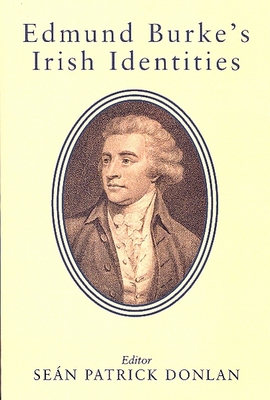Edmund Burke's Irish Identities
Michael O'Sullivan reviews Edmund Burke's Irish Identities, Sean Patrick Donlan (ed), Irish Academic Press, ISBN 9780716533856, 35 euro pbk

SINCE H D Mahoney's Edmund Burke and Ireland, published in 1960, there has not been a comprehensive critical work on Burke's relationship with his native land.
Certainly among the 'revisionists' Burke's 'Irishness' is either ignored as problematic or considered somehow unfashionable. But even the serious historians neglect the subject, which is undoubtedly central to an understanding of the man and his career.
All his life Burke remained preoccupied with Ireland and Irish affairs - both his first important political work, a powerful critique of the penal laws, and his last published letter, addressed Irish issues - a position that made him deeply unpopular in political circles and probably ensured his exclusion from high public office.
This is the first collection of essays to concentrate exclusively on Burke's Irish sympathies and affiliations, and features work by thirteen scholars from a variety of backgrounds.
Burke's childhood in north Cork, in the homestead of his maternal relatives the Nagles, one of the last survivors of the Gaelic Catholic landed families of Munster, is the subject of Katherine O'Donnell's revealing contribution.
There is valuable detail from L M Cullen on his undergraduate years at Trinity, before whose gates his statue stands alongside Goldsmith's, and his lifelong attachment to its institutions.
Subsequent chapters examine Burke's long and spectacular political career in England, his close friendships with fellow Irishmen and his abiding interest in Irish matters particularly absenteeism and the desperate plight of the Catholics.
In a penetrating chapter on Burke and history the editor of the collection Sean Patrick Donlan lays bare Burke's views on the absurd one-sided nature of the accepted accounts of Irish history, reeking of bigotry and anti-Irish bias. Burke's own library contained all of the works of the great Gaelic historians along with numerous manuscript histories in the Irish language.
There is a great deal in this book on how Burke appeared, and appears, to others. He is at once staunch royalist and anti-imperialist, crusading Whig and reactionary Tory; and it is a measure of his greatness that he is claimed by so many. But he was also an Irishman, who, as Elizabeth Lambert in her chapter on Burke's Irish connections in England puts it, 'wore his Irish nationality as an unambiguous form of identity'.
Burke's legacy continues to be disputed. These contributions, skilfully arranged and edited by Sean Patrick Donlan, will do much to stimulate discussion and further expand the debate on the nature and extent of his Irish inheritance.
Connolly Association, c/o RMT, Unity House, 39 Chalton Street, London, NW1 1JD
Copyright © 2007 Michael O'Sullivan

